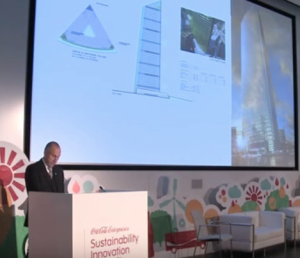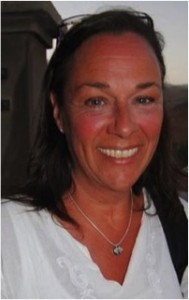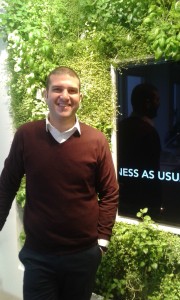Vertical farming goes back 4000 years, for instance, the hanging gardens of Babylon. New vertical farming ideas started in modern times when city-land was identified as a scarce and expensive resource. Research was re-initiated in vertical farming by Dickson Despommier from Columbia University. However, it looks like the first actual smart vertical greenhouse in modern times is being set-up by Swedish-Indian Plantagon!
This is the second article about Plantagon and the vertical skyscraper greenhouse that they are planning, do you want to read the first article, click here!
The first pilot building will be set-up in Linköping, starting 2016
It is not a coincident that Linköping is the first building location as a lot of the research in vertical greenhouses was once conducted here and the relations between Plantagon, the City Council and the Swedish University of Linköping are very good according to Plantagon.
This is a film of the model of the Swedish Linköping vertical greenhouse, development will start at the end of the summer of 2016. Film: AnnVixen
The city of Linköping has a population of 150 thousand persons and the vertical greenhouse will supply a significant portion of the inhabitants needs of leafy greens!
The vertical greenhouse, to be branded “World Food Building”, will be full off smart interconnective solutions and is

probably one of the first smart vertical greenhouses to be built. Sepehr Mousavi, Sustainability Strategist, tells me that once the Linköping greenhouse is in place a significant international interest from meida is expected as well as a large amount of delegates and study tours from around the world.
The greenhouse development has been postponed from its original plan as the development brought new aspects connected to regulation for land use of industrial-food-production which was a novelty for the city council. The city council has adjusted their permits, to what I presuming become closer to smart city thinking, to be able to make the vertical skyscraper happen.
Currently all the permits needed are in place and the city is now supporting the development site with road access, water and electricity so that the development can start in the autumn of 2016.
The investment, cost and payback time and business model of the greenhouse
The initial investment of the greenhouse in Linköping is budgeted to about 300 million SEK / 32 million Euros the estimated payback time of the investment to be about 5 years. The cost doesn’t include the years of research, and the next building will probably cost just as much.
The business model and the model for running the building is still under development and a lot of questions are still to be investigated. Will Plantagon only be the owner of a building? Will they run operations or let 4000 m2 of respective office- and greenhouse space? There will be revenue from excess energy of the production process that will be sold back to the local energy plant and many other factors that have to be taken into consideration of a business model.
About Plantagon

Plantagon was founded by Hans and Karin Hessle in 2008 together with the current chairman of Plantagon, Oren R. Lyons. Oren is the faith keeper of the native american

Plantagon sorts itself as a CSR (Corporate taking Social Responsibility) based “Companisation”. The Companisation model, developed by CEO Hans Hessle, is a hybrid of a company and a non-profit organisation. The “Companisation” setup of the organisation is interesting as normal companies are driven by pressure for growth and financial return and people working there might make unsustainable decisions.
The companisation hybrid is a way to control that the company holds its sustainable purpose. The nonprofit side could be seen as a control function of the profit side, and is a member based organisation where anyone can become a member by paying a membership fee. If the setup actually works is difficult for Tellus Think Tank to tell at this point, but the ideas it is based on are really interesting!
With another perspective Plantagon has a modern network-based organisation where the core circle employees focus

on vision, strategies, operations, technical- and innovation development, research and marketing. Surrounding circles hold an advisory board with members like Mats Hellström, the former Swedish minister of agriculture and trade and alliance partners such as Sweco (largest engineering company in Europe) and many other stakeholders in a partner-pool.
It can also be mentioned that the ethical framework of both profit and nonprofit side of Plantagon is the UN Earth Charter and the Global Compact (a tool that the UN works with, among others).
We thank Sepehr Mousavi for an inspiring meeting! Let’s hope that we soon will have a vertical greenhouse, delivering locally grown veggies, in a city close to us in the near future!
–Did you read the first article on Plantagon? If not, you’ll find it here!
Next week Tellus Think Tank will share an alternative way of living, small living, in tiny homes – something for you? Read more next week, if you wish we will notify you when the article is available.






